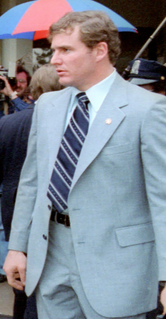A Quote by David O. McKay
Thoughts that most frequently occupy the mind determine a man's course of action.
Related Quotes
Thoughts are ephemeral, they evaporate in the moment they occur, unless they are given action and material form. Wishes and intentions, the same. Meaningless, unless they impel you to one choice or another, some deed or course of action, however insignificant. Thoughts that lead to action can be dangerous. Thoughts that do not, mean less than nothing.
Never allow any unnecessary or vain thought to occupy your mind. This is more easily said than done. You cannot make your mind a blank all at once. So in the beginning try to prevent evil or idle thoughts by occupying your mind with the analysis of your own faults, or the contemplation of the Perfect Ones.
The most reckless sinner against his own conscience has always in the background the consolation that he will go on in this course only this time, or only so long, but that at such a time he will amend. We may be assured that we do not stand clear with our own consciences so long as we determine or project, or even hold it possible, at some future time to alter our course of action.
Active questions are the alternative to passive questions. There is a huge difference between, 'Do you have clear goals?' and 'Did you do your best to set clear goals for yourself?' The former is trying to determine the employee's state of mind; the latter challenges the employee to describe or defend a course of action.
He who thinks much says but little in proportion to his thoughts. He selects that language which will convey his ideas in the most explicit and direct manner. He tries to compress as much thought as possible into a few words. On the contrary, the man who talks everlastingly and promiscuously, who seems to have an exhaustless magazine of sound, crowds so many words into his thoughts that he always obscures, and very frequently conceals them.





































